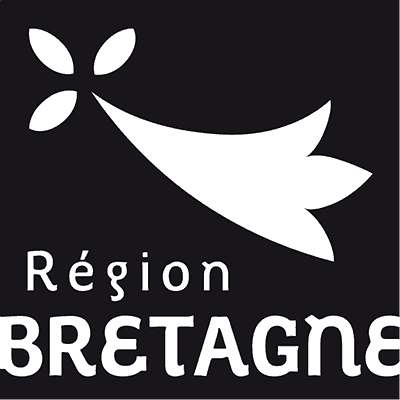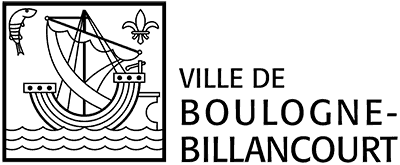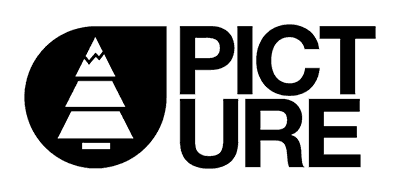[NOMADE DES MERS] A worldwide network of solar cookers !
Date de publication : November 21th, 2021
Auteur : Guénolé Conrad
Localisation : New-York, USA
While in New York, the crew of the Nomade des Mers was able to visit a particularly inspiring organization, some would even say “radiant”: Solar Cookers International (SCI). This organization has been working for years to promote, research and provide resources in order to spread solar cooking in the world.
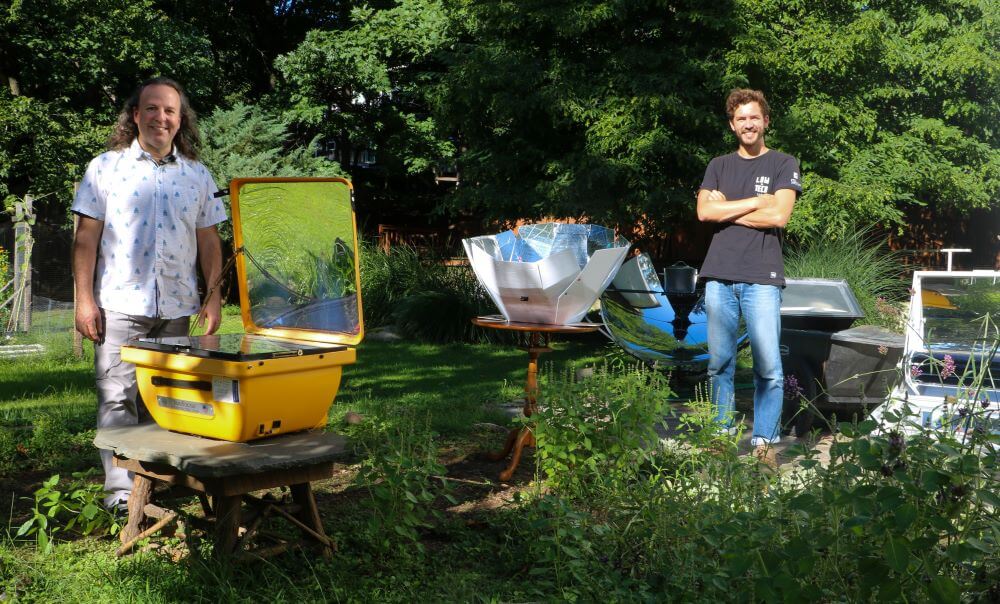
The stakes of solar cooking
Before we get to our meeting with Alan Bigelow, SCI’s Scientific Director, let’s take a quick look at the stakes of solar cooking in the world:
In 2021, more than 3 billion people, 3 out of 7 people, cook daily by burning wood, animal dung or charcoal Most of these people live in the so-called “Southern” countries where the sun is extremely abundant. Solar cooking has a huge potential for several reasons:
- Economic: For many families, the purchase of fuel for cooking represents up to 30% of annual income. The sun is a free and abundant resource.
- Health: Combustion smoke is responsible for many diseases (respiratory, ophthalmic, etc.) affecting mainly women and children. Solar cooking does not produce any. It can also be used to sterilize water.
- Environmental: Solar cooking could help stop some of the world’s deforestation and CO2 emissions due to fuel cooking.
- Emancipation: Solar cooking can create many economic opportunities. Restaurants, bakeries, tea shops and even solar dry cleaners are springing up all over the world!
- Because it’s delicious and fun! (well, this is our point of view)
Yet today, solar cooking is still largely underused. Why ?
- The lack of information of the population and the political decision makers on these solutions.
- The solar cooker market lacks investment and certified measures to make them recognized and accessible everywhere.
- Free energy is not profitable for everyone… (well, this is also our point of view)
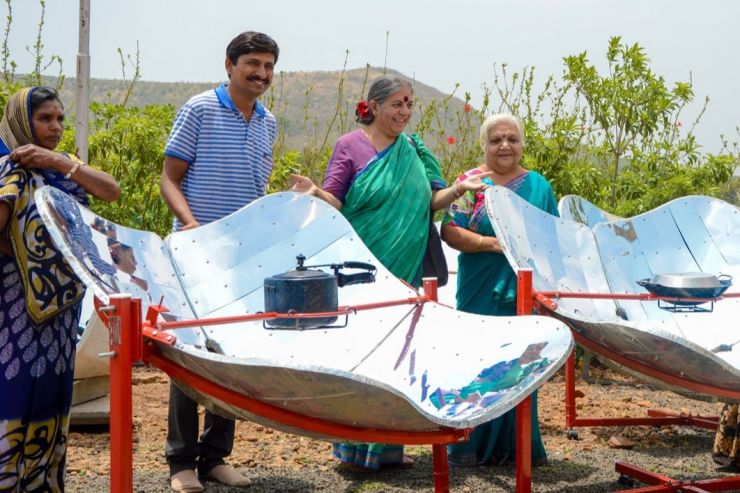
In the eye of the storm
Let’s get back to our stopover. While in New York City for several weeks, we had to visit this organization that we admire and whose work we regularly use. But, the day before our meeting, the city is hit by Hurricane Ida, putting thousands of people in the dark and under water… For us, the night is long and stressful, we even experience the famous “Eye of the hurricane” but fortunately no damage. Our ancors are holding the shock. What does this have to do with our subject? I’m coming to that.
The next day, it is under a great sun but in an apocalyptic scenery that we travel to Alan Bigelow’s house in the periphery of the city. He receives us, the contents of his freezer on the table saying “The neighborhood has been without electricity since yesterday. We have no freezer, no electric oven, no induction cooker; what a better opportunity to show you the interest of a solar cooker? With amazed eyes, we discover his garden. Solar ovens, concentrators and solar dryers of all kinds are already warming-up. It is a real solar banquet that awaits us !
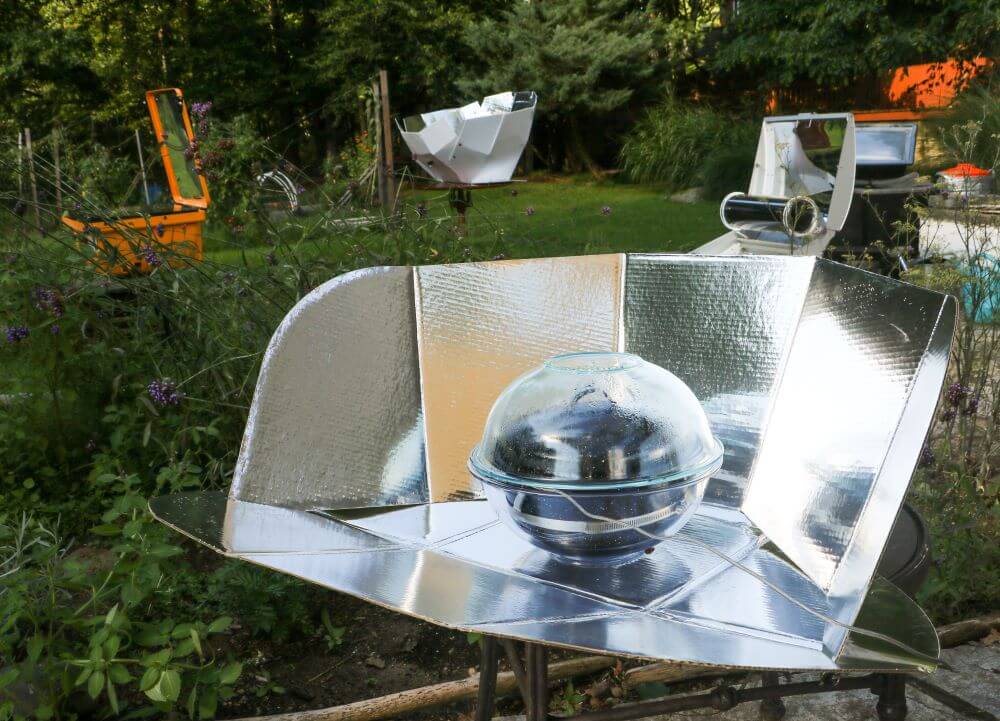
A standardized evaluation process for solar cookers
“The reason I have so many different solar cookers in my home is not just because I’m greedy. As SCI’s Chief Scientist, I conduct performance tests on many of the solar cookers available on the market. Just as the number of kilometers per liter is important for drivers, the standard cooking power of solar cookers is useful for customers to make informed decisions. Until now, these numbers did not exist. Every manufacturer could say “My solar cooker is the best in the world!”. We have developed a Performance Evaluation Process (PEP) in accordance with the International Organization for Standardization (ISO) that allows us to assign a standard cooking power in watts to each model. The measurement protocol is as follows:
- We filled the solar cooker with a volume of water proportional to its size.
- Over a period of 4 hours in a row, centered on noon, we measure the temperature of the water continuously and compare it to the outside temperature. We reproduce these measurements on 3 consecutive days.
- In parallel, we measure the amount of energy available that same day. We measure the wind speed and the irradiance, i.e. the light power received by a given surface. Below certain thresholds, the measurements cannot be kept.
- The evolution of temperature over time allows us to give a standard cooking power.
PEP test results allow manufacturers to share evidence-based claims for their solar cookers. As an organization, we only promote models that have passed these tests. But before we continue, let’s eat!”
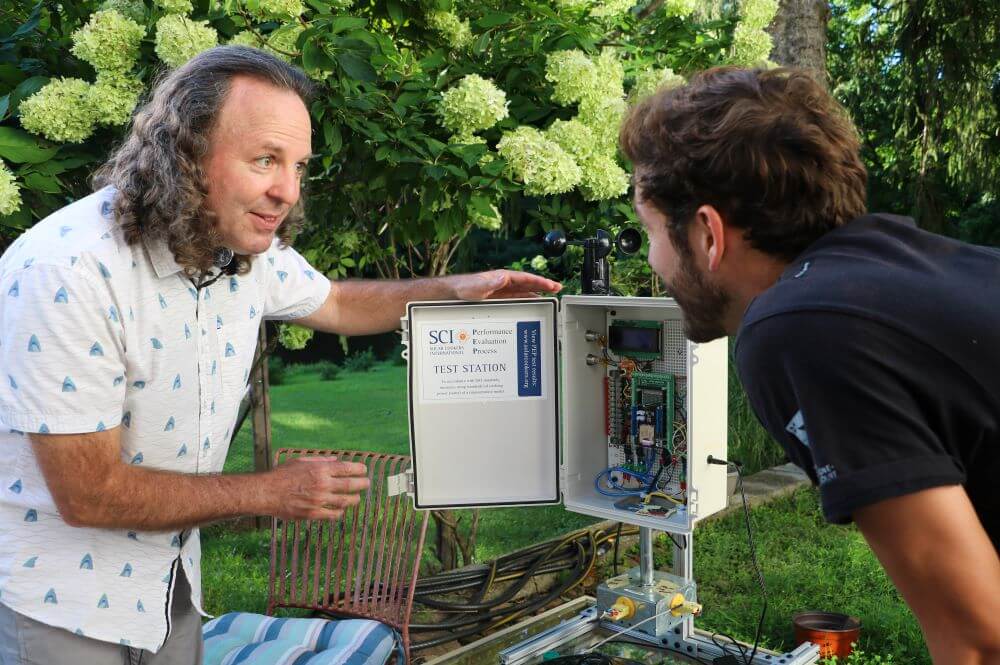
Advocacy to the UN
Solar fries, pasta with garden pesto, sun-dried tomatoes… The dishes succeed one another. A delight. Between two mouthfuls, Alan explains us his other role:
My other mission within SCI is advocacy, especially at the United Nations. We encourage political leaders to include clean and sustainable cooking in their Nationally Determined Contributions (NDCs) to reach the 2015 Paris agreement. And we have some great wins! In 2020, the Kenyan government officially included solar cooking as a criteria for achieving its Sustainable Development Goals (SDGs). This can for example lead to public policies that encourage the purchase or development of solar cookers. This is very important to give credibility to these still little known solutions.
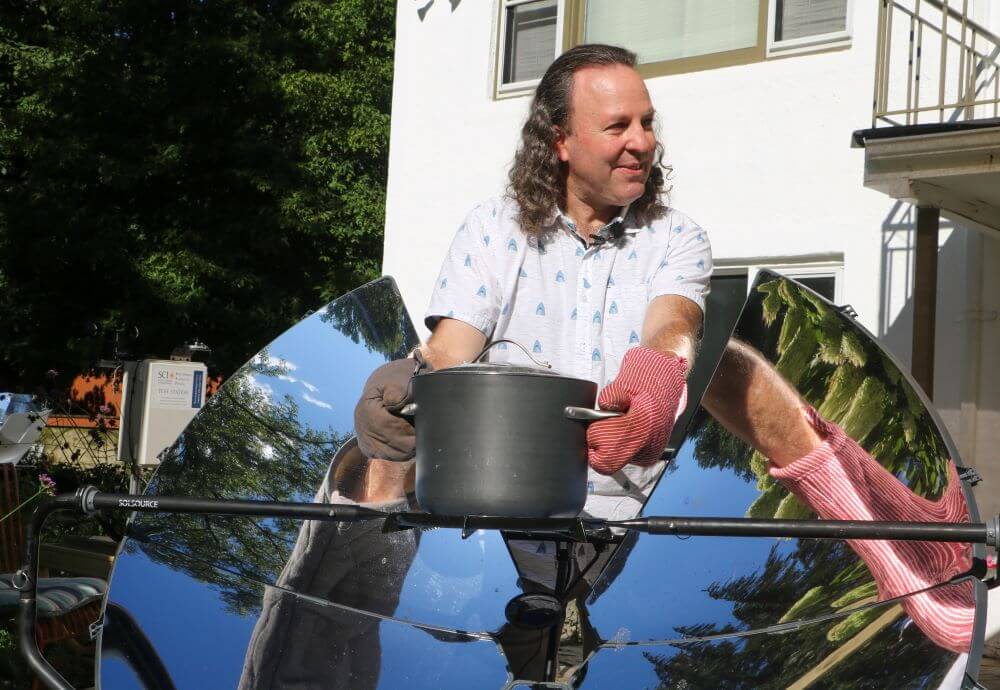
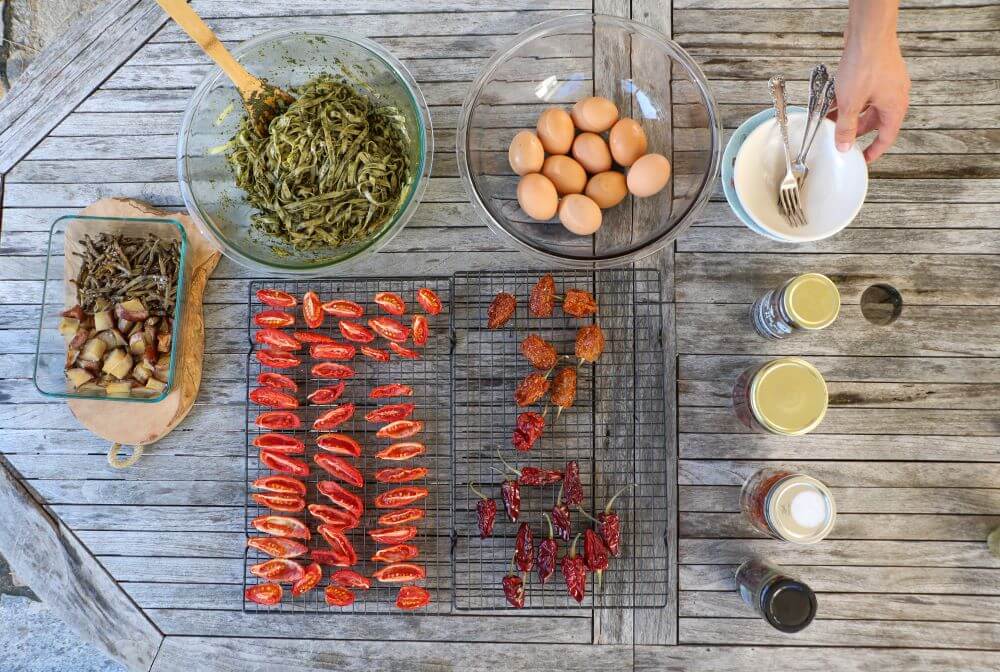
A worldwide sharing community
But SCI’s greatest achievement is surely to have succeeded in building a huge sharing community around solar cooking.
“To facilitate the emergence and the emporwement of this large network, we use a Wiki. It contains:
- A map, listing thousands of inventors, companies, NGOs related to solar cooking in 142 countries around the world. This facilitates the identification and connection of these projects.
- Some 115 plans and open-source instructions to build your own solar oven. From the simplest to the most complex.
- A calendar of events related to solar cooking
- Hundreds of documentary resources, scientific publications and training guides in different languages
- A blog and a forum to exchange and follow the news of the network.
We also try to highlight the most beautiful “success stories” around solar cooking. We are told that solar bakeries are opening in Haiti, that a street vendor is offering solar tea in Nepal, that a woman is ironing with a solar concentrator in India and that a restaurant is offering solar meals in France… The possibilities are endless. This is just the beginning of the solar revolution!”
The work of these enthusiasts is pharaonic. As an organization working on the emergence of a community around low-tech, we must say that SCI’s work has been particularly inspiring. Today, there are some 5 million solar cooks in the world and new projects are emerging every day.
Let’s go solar !

